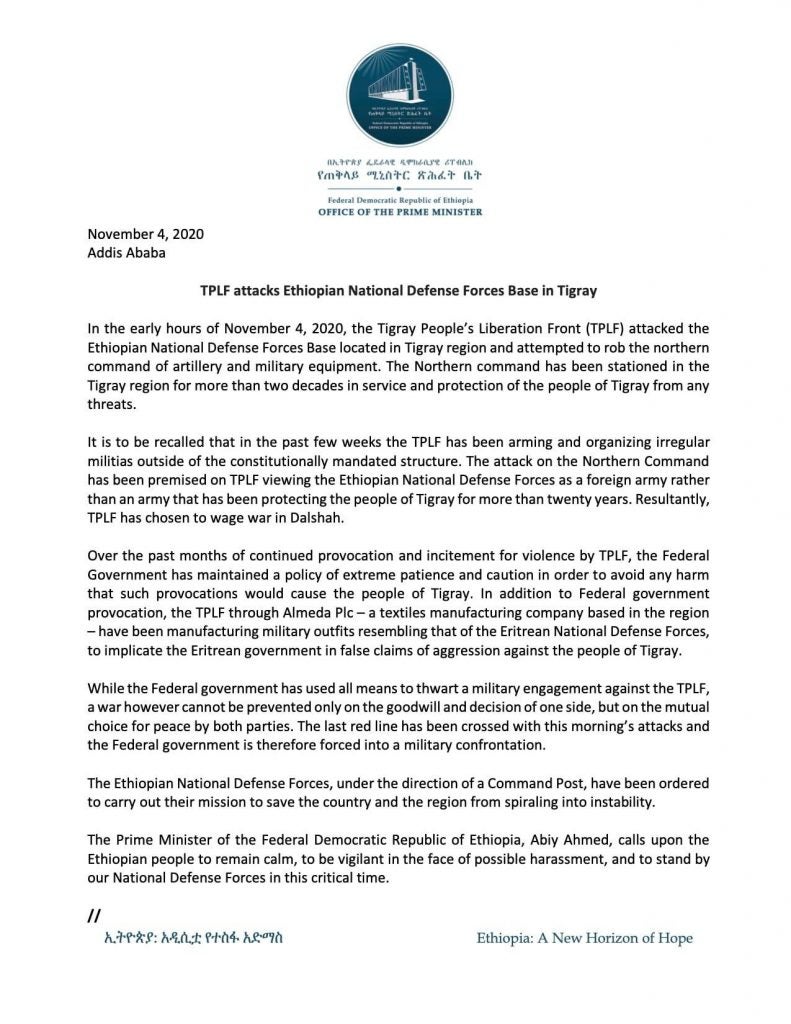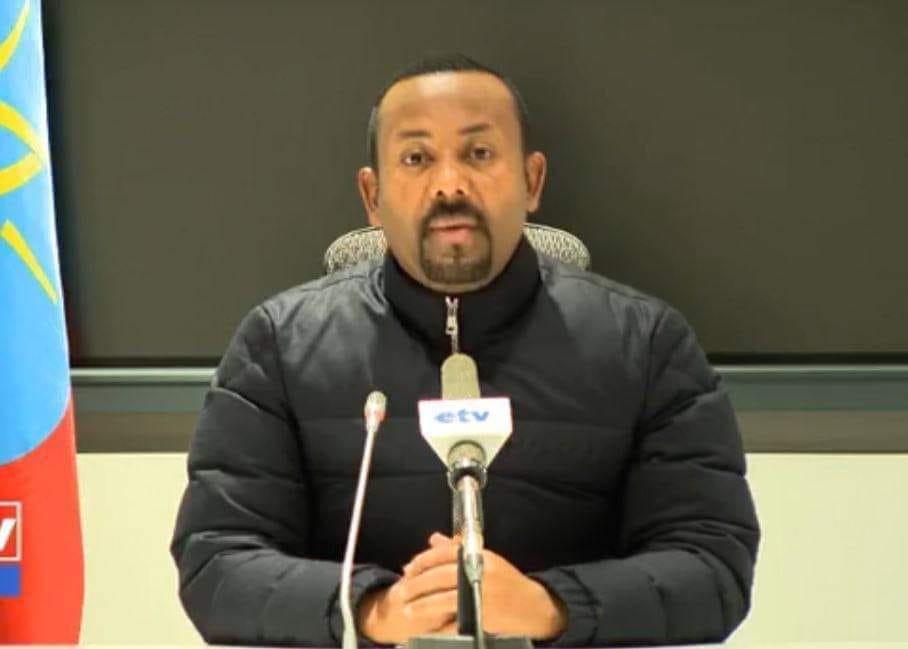Communications Blackout in Ethiopia’s Tigray State As Fighting Breaks Out
Mobile networks, fixed-line internet and landline telephony in Ethiopia’s Tigray region have been cut off, as heavy fighting between the Ethiopian National Defense Forces and the Tigray People’s Liberation Front in the region is reported. Fighting was reported shortly after Ethiopia’s Prime Minister Abiy Ahmed ordered a military intervention in the state.
The communications blackout was reported on by NetBlocks, an NGO monitoring internet blackouts. According to NetBlocks, the blackout began at 1AM local time. Jakenn Publishing, the publisher of the Addis Standard news magazine has issued a statement urging for the lifting of the blackout, asking the Ethiopian government to “let the truth be upheld“.
The order for a military intervention came shortly after Abiy declared today a six-month state of emergency in Tigray. The declaration follows a government claim that an Ethiopian National Defense Forces base in the region had been attacked by the TPLF earlier today.

In a televised address, Abiy stated that there had been “several martyrs” in the attack that took place in the early hours of Wednesday, accusing the TPLF of attempting to steal artillery pieces and other military equipment from the base. He said: “The final point of the red line has been crossed. Force is being used as the last measure to save the people and the country”.
Analysts and diplomats had previously warned of armed conflict as a highly likely outcome of escalating tensions between the TPLF and the Ethiopian federal government. Tensions between both rose after Tigray regional leaders conducted regional elections in September that were deemed illegal by the federal government, owing to electoral officials ruling in March to suspend all elections until the COVID-19 situation in the country eased. Both the TPLF-dominated regional government and Addis Ababa now view each other as illegitimate, with federal lawmakers voting in October to cut off contact with Tigray leaders as well as federal funding.
Much of the Ethiopian National Defense Forces’ equipment and personnel is based in Tigray, a legacy of the bitter 1998-2000 Eritrean–Ethiopian War, Africa’s deadliest border war to date. The Tigray regional government has already claimed that the Northern Command of the National Defense Forces had defected to the TPLF’s side, although the claim was denied by prime minister’s spokesman Billene Seyoum. Regardless of the veracity of the defections, the amount of military hardware in the region raises concerns of a protracted civil war with significant collateral damage. Additionally, the Prime Minister has called for the return of three lieutenant generals that had been previously laid off by the National Defense Forces.
Communications blackouts are routinely used by 2019 Nobel Peace Prize winner Abiy’s government during protests or security crises, with Human Rights Watch reporting eight such blackouts during 2019, including a nationwide blackout following the assassination of 5 senior governmental officials in late June. That such a heavy-handed tool is used so frequently in peacetime is cause for concern, and doubly so during military operations.

